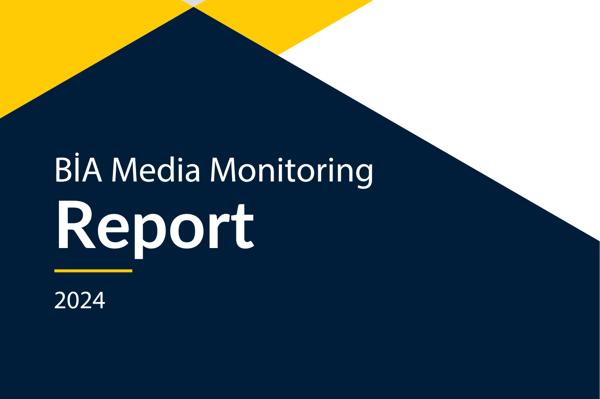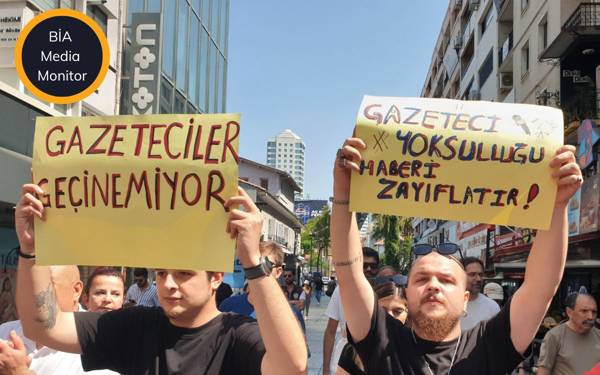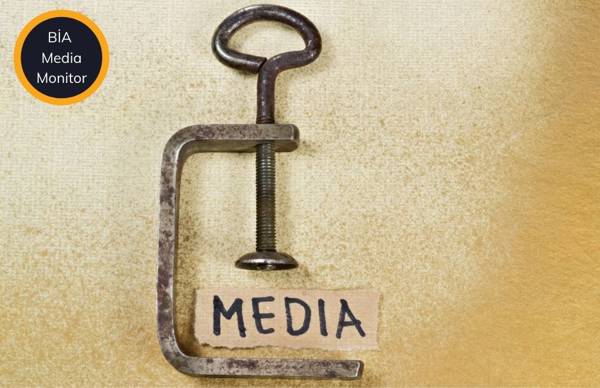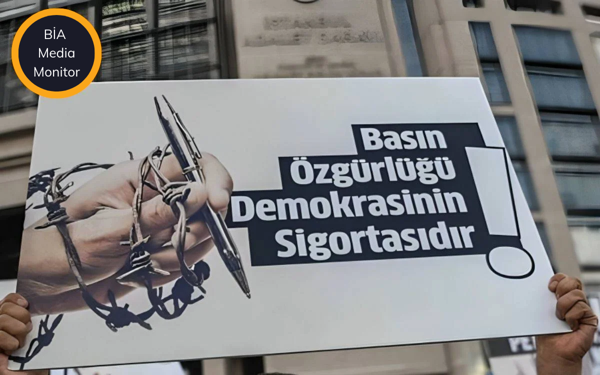Journalists: Press Freedom and Job Security
"It is not enough to prepare and pass laws," said communications law expert Ilkiz. "The important thing is to change the mentality." Ilkiz talked about the contradictions he has observed and his reaction:
Although it is accepted that the new media laws passed before December 12, 2002, meet the European Union (EU) criteria and the Copenhagen Criteria, I don't think Turkey has moved even a tiny step forward with these laws.
It is not enouth to prepare and pass laws. The important thing is to change the mentality and to accept that the freedom of press is actually the freedom of expression for everybody. This is why the year 2003 is especially important for Turkey.
"The media bosses will no longer have the right to lay employees off anytime they want to," said TGC head Erinc. The employees who were laid off for subjective reasons, will now have the right to take their cases to court, said Erinc:
* The governing Justice and Development Party (AKP) has announced that the Job Security Law, which regulates the work of journalists who are employed under Law No:212, will change. This will be a dangerous development for journalists.
* The issue of unionizing should also be taken into account if AKP wants to take steps toward the EU. EU requires that employees are members of unions.
* A new law should be prepared for online journalism by taking account the special circumstances of the Internet. The online journalits should be able to work under Law No:212 like other journalists.
Orhan Erinc drew attention to the fact that the fines imposed on journalists under the Press Law, are very high. Erinc said the following about the negative effects of the Press Law:
* Confiscating newspapers, pulling certain programs off the air, and imposing astronomic fines on journalists, are unacceptable.
* Turkey's press authority had coordinated the drafting of a new Press Law. The EU reforms were not an issue at the time. The text could be considered as the better of the worst and the three coalition partners had reflected their thoughts on the draft.
* The draft should be reviewed and finalized keeping the latest developments in mind. Even though the draft is much more improved than the law that is in effect right now, it includes sections that do not comply with the EU criteria.
Erinc argued that the press laws, the formation of the Radio and Television Higher Board (RTUK), astronomic fines, and canceling licenses, should be reviewed. Erinc said:
* Proper use of Turkish and divisive and provocative speech are under the same category under broadcasting laws. They are both considered to violate broadcasing laws and the punishment in both cases is equal. Such contradictions should be overcome.
Contradictions in TCK
Erinc also emphasized that the Turkish Penal Code (TCK) should be reviewed. Article 159 and 312 of the TCK, violate the freedom of press argued Erinc. "These articles are unbalanced: If you commit a crime through the press, the fines are increased by one thirds or even one half. And these articles are applied equally to newspapers that sell a lot and newspapers that do not sell at all. These articles should be reviewed," he said.
"TMY says expressing opinion is equal to killing a person"
Erinc also drew attention to the negative aspects of the Turkish Terrorism Laws (TMY). "Under TMY, which violates freedom of expression, expressing an opinion is equal to killing someone or being violent."
Soner: "The goal is flexibility"
"AKP is trying to tie the Job Security Law into the Labor Law draft," said TGS head Sukran Soner:
* AKP is neither planning to pass the Norm Personnel Law, which regulates employing a minimum number of workers, nor reviewing the Press Law, nor lifting the regulations on unions imposed after September 12.
* The Copenhagen criteria do not consist of real human rights or economic rights. And this is very suitable for the "back yard" role of Turkey.
* Unlawful employments and unregistered economy bothers noone.
CGD Istanbul head Yarkadas emphasized that the government should take measures against the monopoly in the media sector.
"The major threat towards journalists is the monopolization that is becoming stronger each day," said Yarkadas.
Yarkadas said that a solution should be formulated to this problem. The obstacles to freedom of expression, job security, and the law no: 212 that oversees media employees' rights, are among the problems the government will have to deal with according to Yarkadas.
"It is clear that today, there is neither job security in the media sector, nor the law no: 212 is not being completely implemented," said Yarkadas. (EO/NK/EA/NM)
BİA MEDIA MONITORING REPORT 2024
The government made journalists' lives a living hell in 2024

BİA MEDIA MONITORING/OCTOBER-NOVEMBER-DECEMBER 2024
Truth concealed through repression from all sides targeting journalists

BİA MEDIA MONITORING REPORT
Just silence the journalist, and I won't touch you!

BİA MEDIA MONITORING APRIL-MAY-JUNE 2024
Journalists are on the target and have no legal security anymore!

BİA MEDIA MONITORING REPORT
The era of 'judicial control' confinement and torture in journalism






